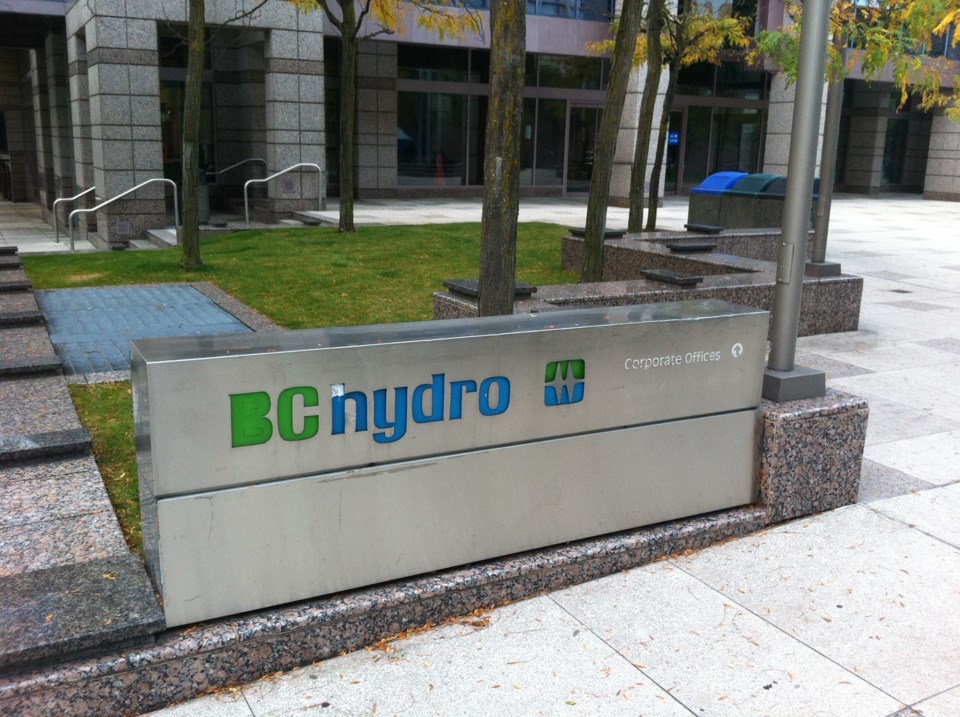The B.C. Utilities Commission has concerns about the progress of the Site C hydroelectric dam, but it doesn’t yet have enough information to assess whether the $8.8-billion project should continue, be suspended or be terminated, says a preliminary commission report.
B.C. Hydro’s project is on time and might be on budget for its target 2024 completion date — but whether that will remain the case is uncertain, said the report, which was released Wednesday night.
The commission said it is concerned about spending levels, outstanding contracts and the likelihood that the project will meet the crucial milestone of a river diversion by 2019.
The preliminary report, which will inform the province’s decision about whether to continue with construction, was conducted in six weeks, at the request of Energy Minister Michelle Mungall shortly after the NDP took over the provincial government.
Site C would flood about 5,500 hectares of land along the Peace River in northeast B.C., creating an 83-kilometre-long reservoir and providing enough power to light up to 450,000 homes a year.
“While the panel has already found that the project is currently on schedule to deliver by November 2024, the panel is not yet in a position to express a view on the probability that the project will remain on schedule,” the report said.
“The panel is concerned that the amount spent on the project as of June 30, 2017, $1.8 billion, might not accurately represent the spending that should have happened based on the project activities to date,” it said.
The panel is also “concerned” that B.C. Hydro has already spent $356 million of its planned $794-million contingency, only two months into an eight-year contract.
It noted, however, that B.C. Hydro is working on an accelerated schedule, targeting a completion date of 2023, which could mean heavier spending early on. But again, it said it needed more information.
The panel found it difficult to say whether the river diversion, which must be started between Sept. 1 and Oct. 1 in any given year, when the river levels are lowest, is on schedule. It said missing the milestone would boost costs.
B.C. Hydro estimated that a one-year project delay would cost $630 million, while auditing firm Deloitte LLP said the project could go up to 50 per cent over budget, in their submissions to the commission.
Unknown interest rates and possible underestimations on the cost of two major contracts that have not yet been awarded are other variables that could bump up the cost.
The panel is asking for answers to its outstanding questions by Oct. 4.
By the end of the year, the project will have cost $2.1 billion, it said.
“In conclusion, the panel has identified numerous areas of information gaps which require supplemental evidence and analysis from B.C. Hydro and/or the public in order to make definitive and conclusive findings,” the report said.
When Mungall requested the review on Aug. 2, she said it would be used to determine whether Site C is in the public interest.
She did not ask the commission to give any recommendations — or ask it to consider impacts on First Nation rights, the environment or agriculture, issues that have sparked strong opposition to the project.
A final report from the commission is due Nov. 1.
“We’ll be making our decision on the final report,” Mungall said before the report was released.
She said she would comment on the report today.
Work is continuing on the site during the review.
The B.C. Liberals, who approved Site C, and other supporters say about 2,500 jobs depend on the project and that it would create clean energy for the future.
- - -
B.C. Utilities Commission's Site C preliminary report, in PDF format



